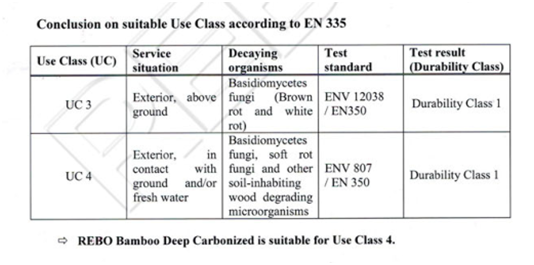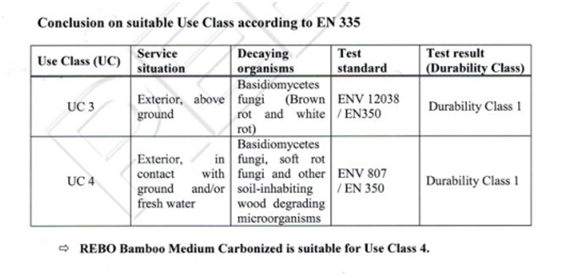What Use Class should the decking be treated to?
Consumer and contract law require that any product offered for sale must be fit for its intended use and a decking product is no exception.
Use Class is a term taken from BS EN 335:2013 (Durability of wood and wood-based products. Use classes: definitions, application to solid wood and wood-based products). This standard groups possible end uses for timber into 5 classes referred to as Use Classes.
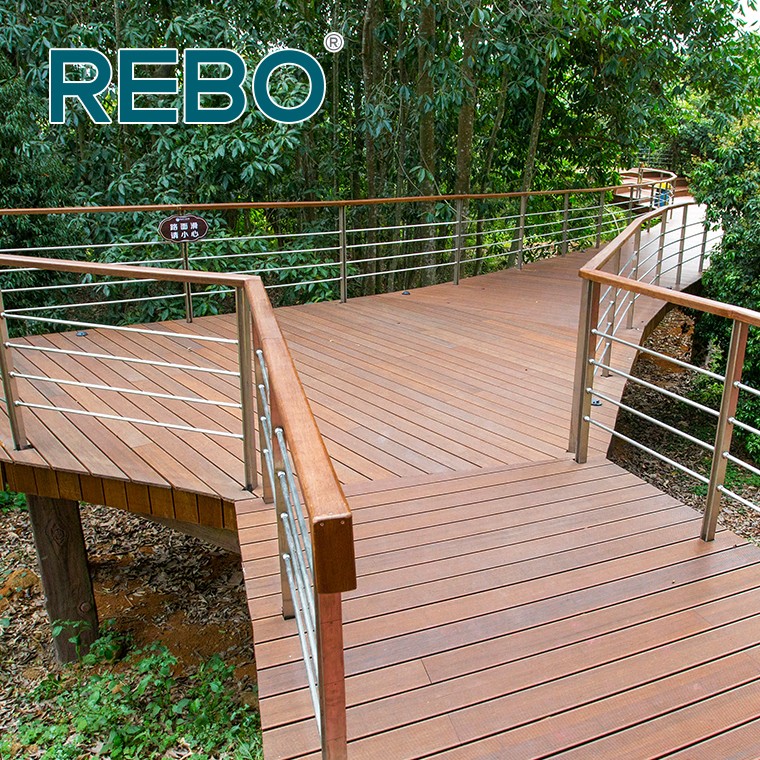
When purchasing decking and associated joists or bearers, a common question is what Use Class should the timber be treated to? The answer is dependent on where the deck will be used. Direct contact with either ground or freshwater is one of the most challenging environments for decking and is classified as Use Class 4. In coastal environments pressed and thermal treated deck boards performs well as a structural material, giving a stable and durable solution, making it a preferred choice in river or marine applications.
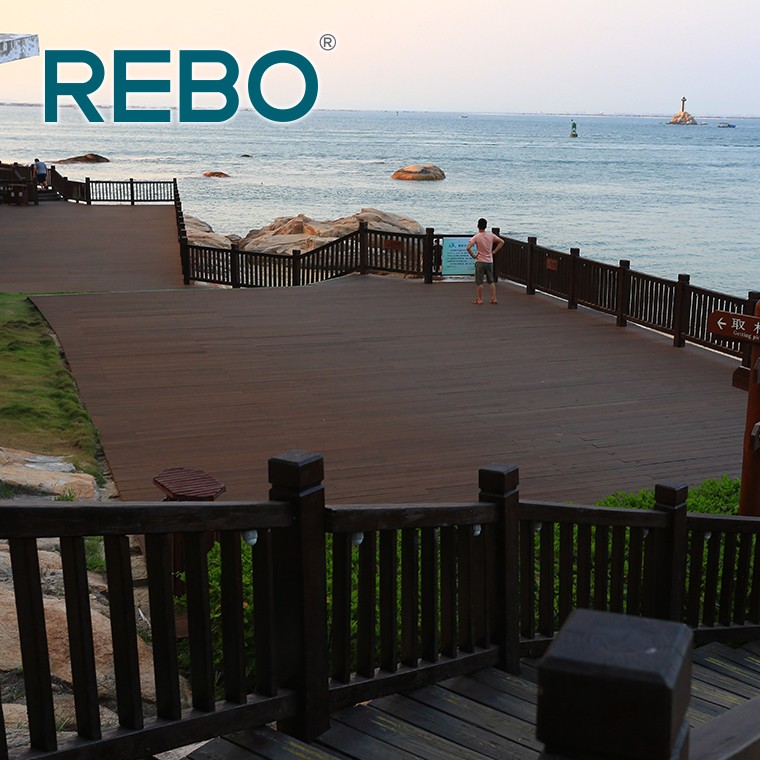
Use Class 3 applies where the decking is above the ground and only needs pre-treating to provide extra protection from the elements. The essential part to check is when a deck designed for an above ground application, and so treated to Use Class 3, has posts and joists that may be in ground contact. Best practice for decking design and installation states that ‘Where posts and joists will be in contact with the ground only Class 4 treatment is fit for purpose – nothing else will do.’ In ground contact would also apply to joists or bearers that are used for roof decks or balconies where the bearer is permanently supported.
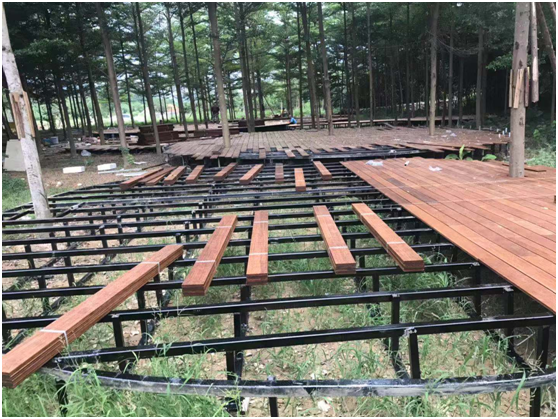
High quality REBO bamboo is a popular and durable choice for decking material. It has been approved to be suitable for Class 4 by RISE research Institutes of Sweden AB, which can contact with ground or fresh water directly. REBO bamboo decking has been widely applied at urban landscape, hotel engineering, villa decoration, building materials supermarket, horse stable, etc.
